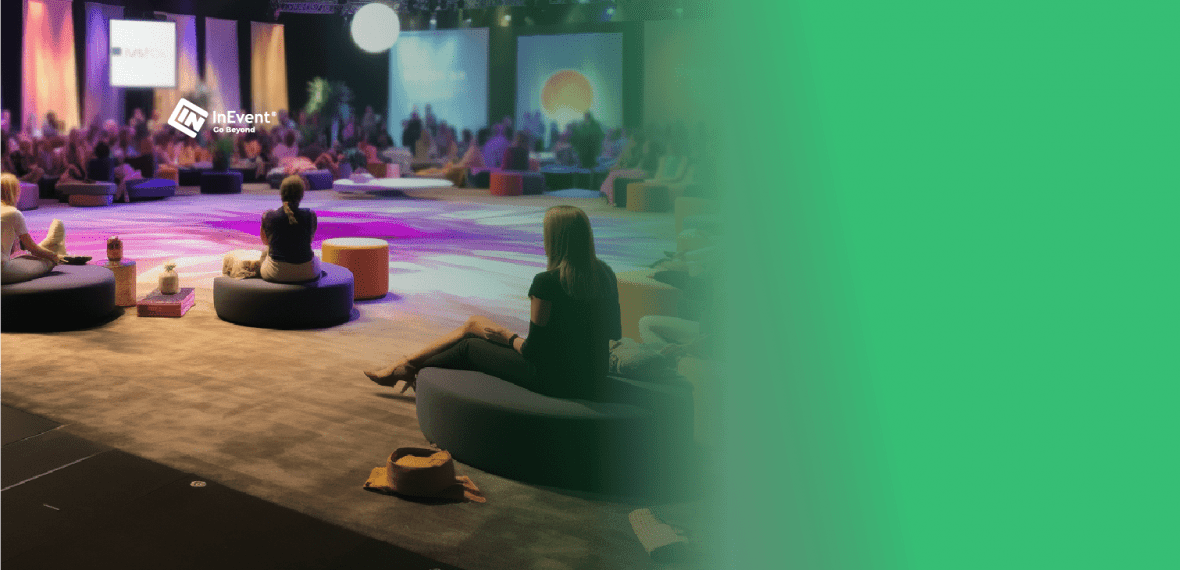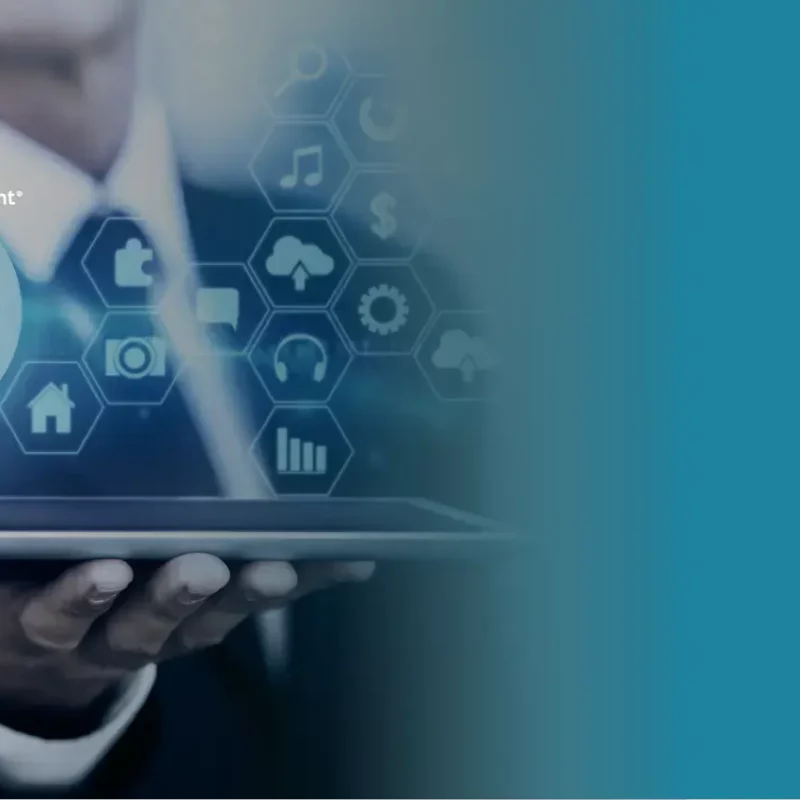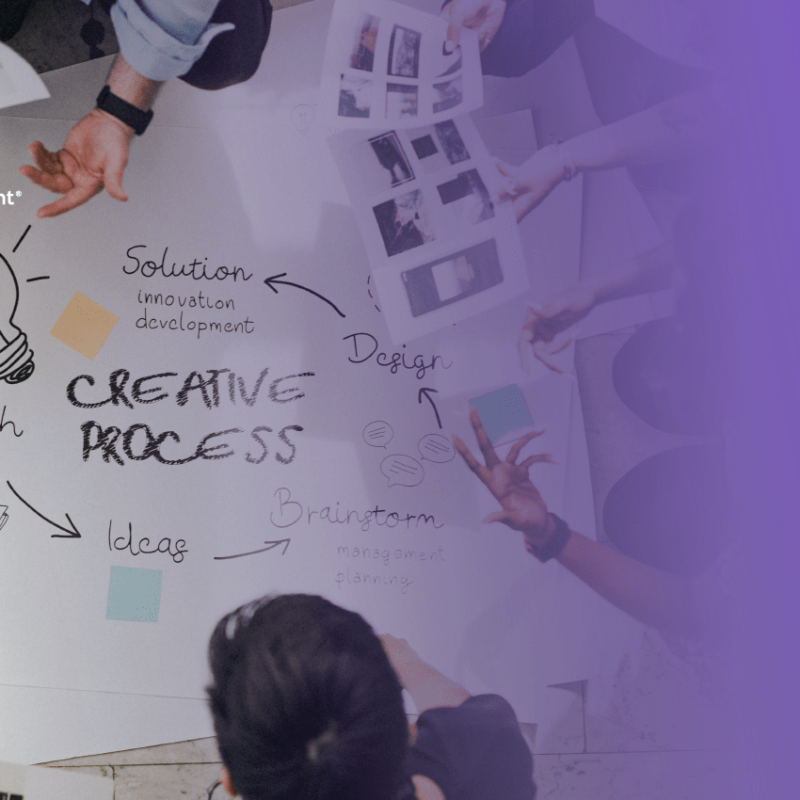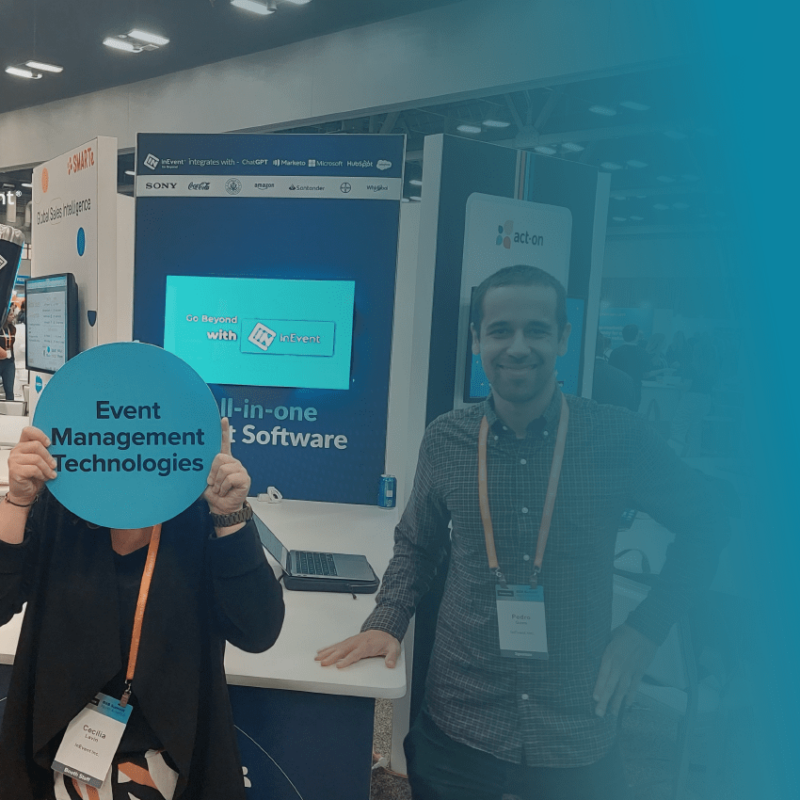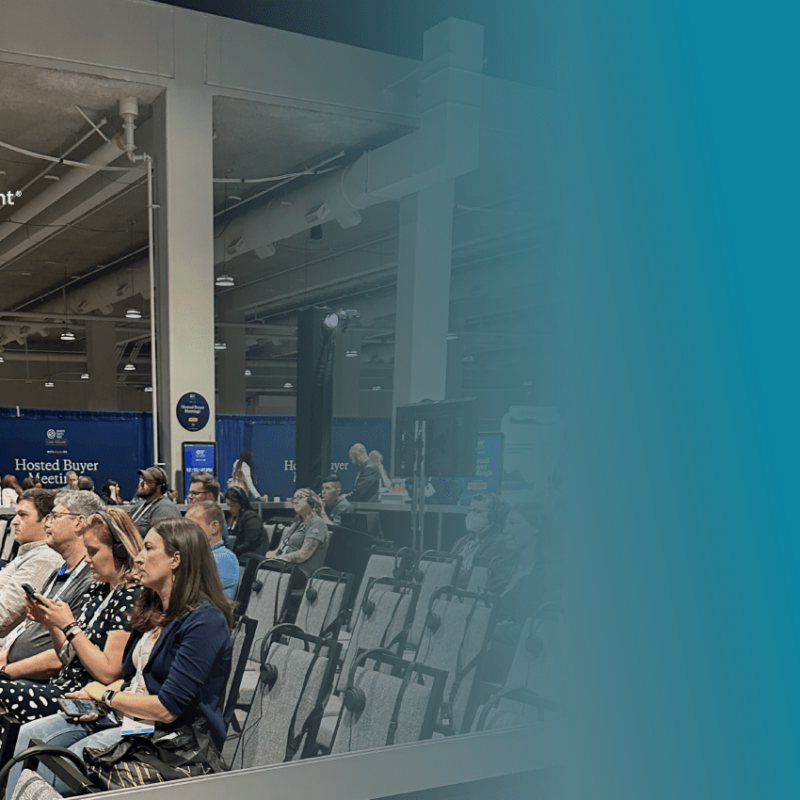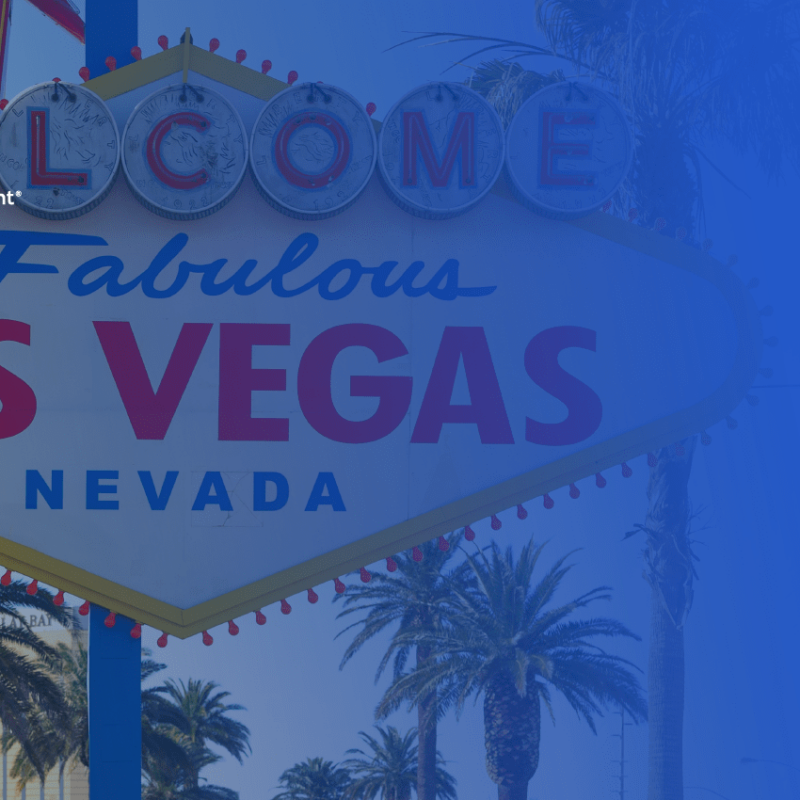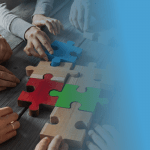Wellness and Mindfulness in Events: 12 Ways To Prioritize Attendee Mental Health.
In our fast-paced and demanding world, it’s increasingly crucial to prioritize your mental health and well-being. This is especially important when attending high-stress events. As an event planner, it’s your responsibility to create an environment that meets logistical needs while nurturing mental well-being. As an attendee at numerous events, tradeshows, and conferences, it’s easy to feel overwhelmed and burned out even before they begin.
This article will explore 12 effective ways to prioritize your mental health as an events attendee, drawing inspiration from the principles of wellness and mindfulness. We’ll provide practical tips and examples to help you achieve this. Event planners, keep reading for ideas you can implement in your next event.
Are you ready? Let’s delve in and enjoy the read.
1. Design Mindful Spaces
When attending an event, pay attention to the design of the space and event venue. Look for areas that are designed with the intention of promoting mental well-being. These spaces may have comfortable seating, calming colors, and natural lighting. Take advantage of quiet corners or meditation spaces provided by the event organizers. These areas can provide you with a sanctuary to recharge and reflect, fostering a sense of mindfulness amidst the hustle and bustle of the event.
For example, imagine attending a conference and discovering a beautifully designed relaxation lounge. The space is filled with cozy seating, soft lighting, and soothing music. You sit down, close your eyes, and focus on your breath for a few moments. This simple act of mindfulness helps you feel more centered and present, allowing you to engage with the event fully.
2. Integrate Wellness Activities
These activities add a unique dimension to the event and promote your engagement and mental well-being. During breaks, organize yoga or meditation sessions, wellness workshops, or even short guided mindfulness exercises. These activities encourage attendees to momentarily disconnect from the demands of the event and focus on their mental and physical well-being.
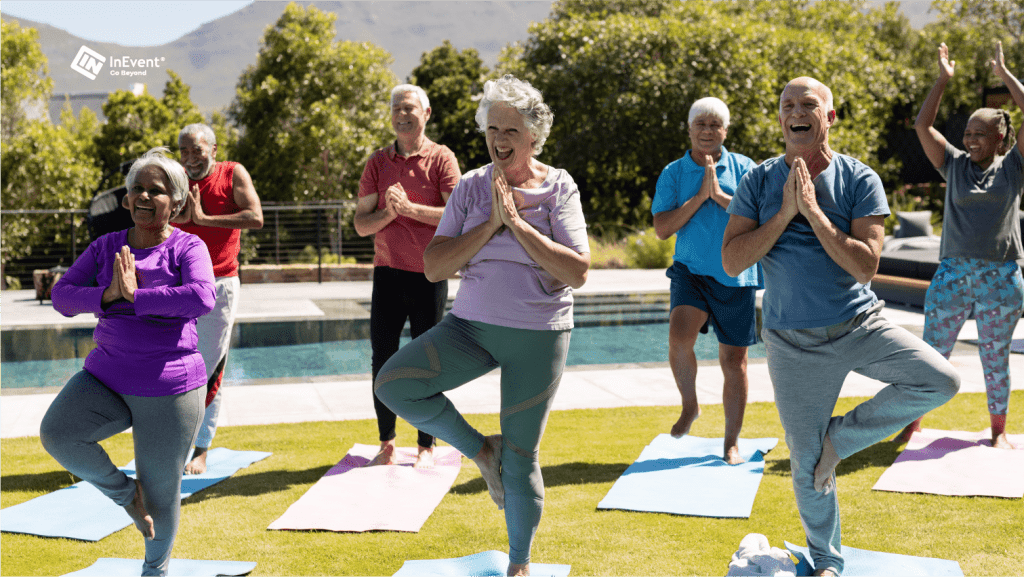
For instance, imagine attending a trade show that offers a morning yoga session for attendees. They join the session and find themselves surrounded by like-minded individuals who are also seeking a moment of relaxation and rejuvenation. The instructor guides the attendee through a series of gentle stretches and breathing exercises, leaving you feeling refreshed and ready to experience the rest of the event fully. This is also a fantastic idea for virtual events.
3. Prioritize Nutritional well-being
Pay attention to the food options available at the event. Choose balanced meals that cater to your dietary preferences. Look for fresh fruits, vegetables, and hydrating beverages on the menu. Proper nutrition keeps you energized throughout the event and supports your overall well-being.
For example, opt for a nutritious salad or a refreshing fruit smoothie during lunch breaks instead of reaching for sugary snacks or caffeine. These choices provide you with the necessary nutrients to sustain your energy levels and contribute to your mental clarity and focus.
4. Embrace Technology Mindfully
While technology can enhance your event experience, finding a balance that doesn’t overwhelm you is important. Take advantage of event apps that provide seamless interaction and access to schedules, maps, and real-time updates. However, also consider setting boundaries for yourself by designating specific times or areas as digital detox zones. These zones encourage you to take a conscious break from screens and devices, promoting offline engagement and mindfulness.
For instance, during a conference, you can choose to leave your phone in a designated digital detox zone while attending sessions or networking events. This allows you to fully immerse yourself in the present moment and connect with others without distractions, fostering a deeper sense of engagement and connection.
5. Cultivate a Supportive Community
Events provide prime opportunities for networking and connecting with others. Seek out events that foster an environment of inclusivity, respect, and support. Look for sessions or panels addressing topics like stress management, work-life balance, and resilience. By actively participating in these discussions, you contribute to the overall mental well-being of the event community.
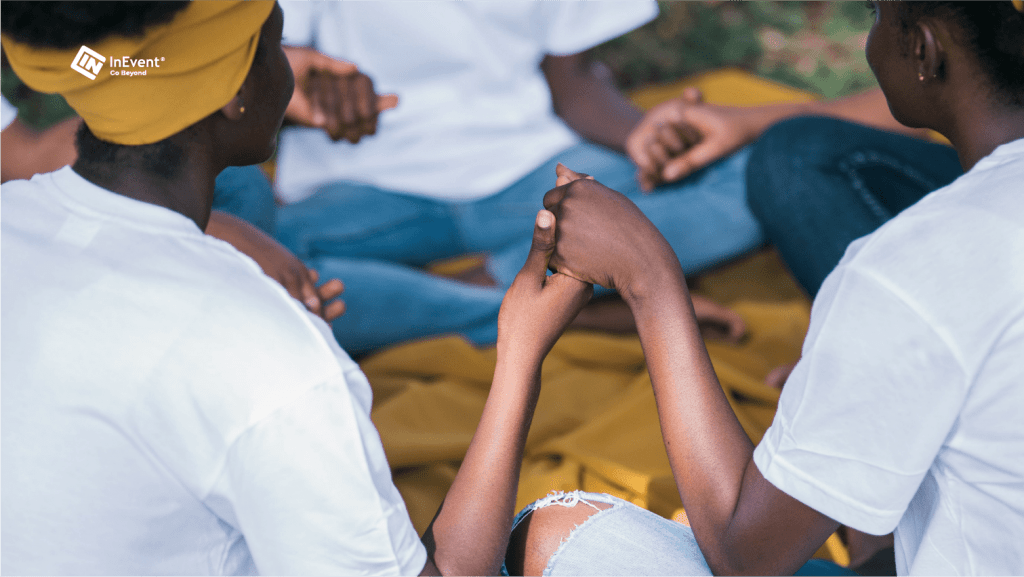
For example, imagine attending a panel discussion on work-life balance at a conference. The panelists share their personal experiences and offer practical tips for managing stress and maintaining a healthy work-life balance. You engage in open dialogue with other attendees, sharing your own insights and learning from their experiences. This supportive community provides valuable resources and creates a sense of belonging and connection.
6. Attend Mindfulness Workshops
Take advantage of any mindfulness workshops offered at the event. These workshops are led by experts in the field and teach practical techniques for managing stress, improving focus, and cultivating a sense of calm. By attending these workshops, you empower yourself to take control of your mental well-being and equip yourself with tools that you can use beyond the event.
For instance, imagine attending a mindfulness workshop at a leadership conference. The facilitator guides you through mindfulness exercises like breathing and body scans. You learn how to apply these techniques in your daily life to reduce stress and enhance your overall well-being. The workshop provides you with valuable skills that you can continue to practice long after the event has ended.
7. Create Mindful Networking Opportunities
Networking is a crucial aspect of attending events, but it can also be overwhelming and draining. To prioritize your mental health during networking, approach it with a mindful mindset. Instead of focusing solely on exchanging business cards and making small talk, aim to have meaningful conversations and genuine connections. Practice active listening and be fully present in the moment.
For example, when conversing with someone at a networking event, consciously listen to what they are saying. Show genuine interest in their story and ask thoughtful questions. By being present and engaged, you not only create a more meaningful connection but also reduce the stress and pressure often associated with networking.
8. Take Breaks and Rest
Attending events can be physically and mentally demanding. It is important to listen to your body and take breaks when needed. Allow yourself moments of rest and rejuvenation throughout the day. Take short walks, find a quiet spot to sit and relax, or engage in a brief mindfulness exercise. These breaks help prevent burnout and allow you to recharge, ensuring that you can fully enjoy and participate in the event.
For instance, if you find yourself feeling overwhelmed during a conference, take a break during the lunch break. Find a peaceful outdoor area or a cozy corner and take a few moments to breathe deeply and clear your mind. This intentional break allows you to reset and return to the event with renewed focus and energy.
9. Practice Gratitude
Gratitude is a powerful practice that can significantly impact your mental well-being. Take a moment each day during the event to reflect on what you are grateful for. It could be something as simple as a delicious meal, a helpful conversation, or a beautiful view. By cultivating a sense of gratitude, you shift your focus to the positive aspects of the event and enhance your overall experience.
For example, at the end of each day, take a few minutes to journal three things you are grateful for from that day’s event. It could be a new connection you made, an inspiring speaker you listened to, or a valuable insight you gained. This gratitude practice helps you maintain a positive mindset and appreciate the event’s opportunities and experiences. I also find that journaling has really helped me remember and appreciate the small moments that may have otherwise gone unnoticed.
10. Engage in Self-Care Activities
Self-care is essential for maintaining your mental health and well-being. Incorporate self-care activities into your event schedule. This could include taking a relaxing bath, practicing yoga or meditation in your hotel room, or enjoying a massage or spa treatment. By prioritizing self-care, you ensure that you care for your needs and nurture your mental and emotional well-being.
For instance, if you attend a multi-day conference, schedule some time each day for self-care activities. This could be waking up early to do a yoga session in your hotel room or booking a massage during a break. These activities allow you to recharge and show yourself the care and attention you deserve.
11. Set Realistic Expectations
When you’re at events, setting realistic expectations for yourself is important. You can’t do everything and be everywhere at once, so prioritize the sessions, workshops, or activities that align with your interests and goals. By setting realistic expectations, you’ll reduce the pressure and stress that come with trying to do it all.
For example, before attending a conference, review the schedule and choose the most relevant sessions for your professional development. Instead of trying to attend every session, focus on a few key ones that will provide the most value to you. This approach lets you fully engage and absorb the information without feeling overwhelmed.
12. Practice Mindful Reflection
At the end of each day or the event as a whole, take time to reflect on your experience. Practice mindfulness by bringing awareness to your thoughts, emotions, and overall state of being. Reflect on the highlights, challenges, and lessons learned. This mindful reflection allows you to gain insights and integrate the event experience into your personal and professional growth.
For instance, after attending a conference, find a quiet space and take a few moments to reflect on the key takeaways from the event. Consider how the knowledge and experiences gained can be applied to your work or personal life. This intentional reflection helps solidify your learnings and ensures that the event has a lasting impact on your mental well-being.
Frequently Asked Questions (FAQ)
1. How can I prioritize my mental health at events?
To prioritize your mental health at events, focus on designing mindful spaces, participating in wellness activities, prioritizing nutritional wellbeing, embracing technology mindfully, cultivating a supportive community, attending mindfulness workshops, creating mindful networking opportunities, taking breaks and resting, practicing gratitude, engaging in self-care activities, setting realistic expectations, and practicing mindful reflection.
2. What are some examples of wellness activities at events?
Wellness activities at events can include yoga or meditation sessions, wellness workshops, guided mindfulness exercises, and even relaxation lounges. These activities promote mental well-being and provide opportunities for attendees to recharge and rejuvenate during busy events. Other examples could include healthy cooking demonstrations, walking or biking tours, and outdoor activities such as hikes or nature walks. Wellness activities can also involve incorporating technology in a mindful way, such as virtual reality experiences or guided meditation apps. Ultimately, the goal of wellness activities at events is to prioritize and promote overall well-being for participants in both a physical and mental sense.
